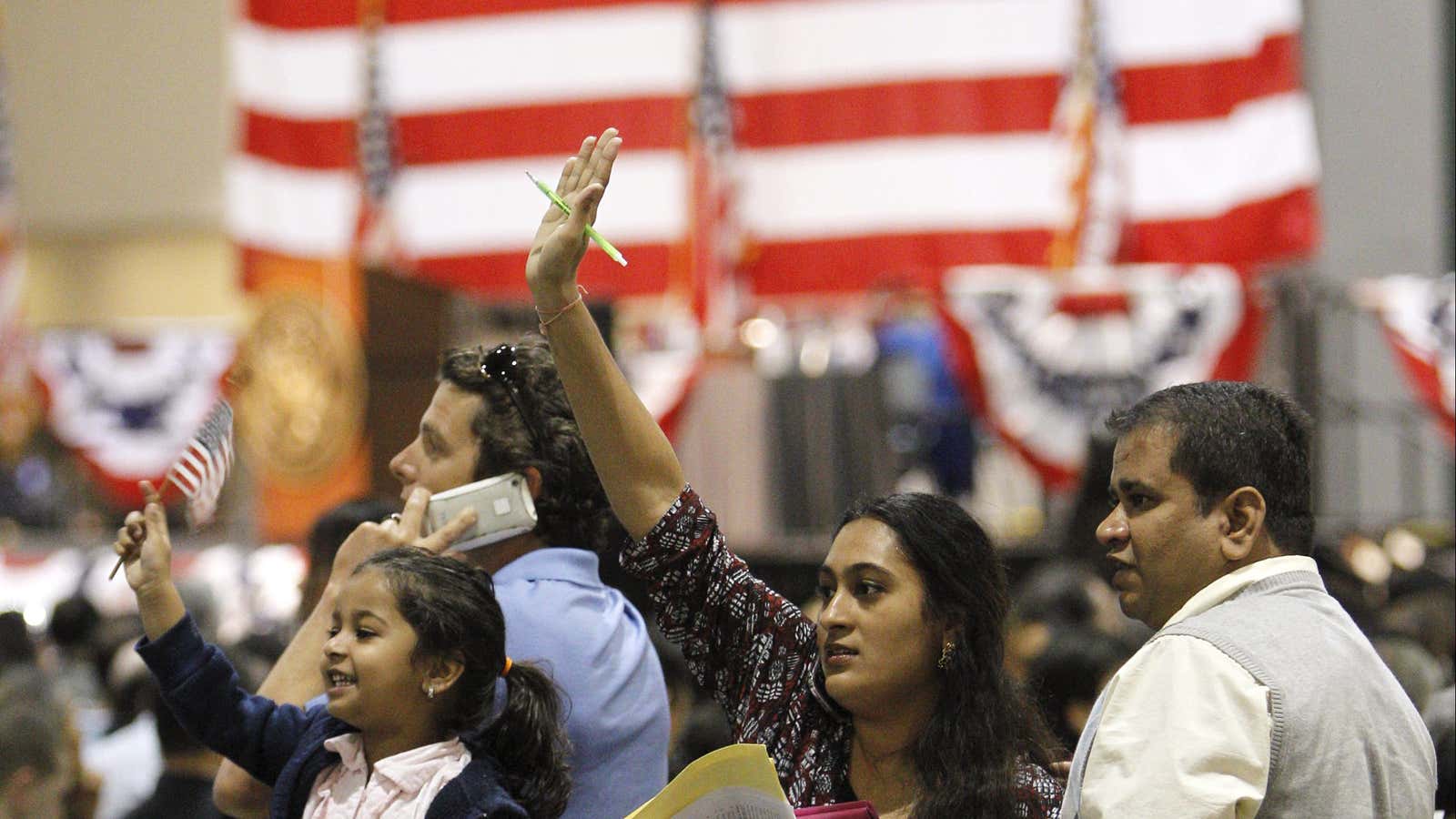Indian wives in the US, battling uncertainty over visa norms, seem to have found some political support in the country.
Up to 15 Congress members out of the 53 from California have written to the department of homeland security requesting it to stall its plans to revoke the work eligibility for spouses of H-1B visa holders, the San Francisco Chronicle reported on Mar. 13.
Indians are the largest beneficiaries of H-4 visas, granted to spouses of H-1B holders, and women account for 90% of those.
“Revoking this eligibility…will create significant uncertainty and financial hardship for many highly skilled professionals who are vital to our economy,” said a letter from the California representatives. “Over 10 million Californians are foreign born, and without them, we would not have companies such as Google, Apple, Facebook, and Qualcomm which have made California’s economy the sixth largest in the world. Over 880,000 immigrants own businesses in California, and together, those immigrant-owned businesses have contributed over $21 billion to our state’s economy and created more jobs than such businesses in any other state.”
In December, the Donald Trump administration had said that it would discuss a proposal to discontinue the work permits of H-4 visa holders this year. The move would overturn a two-year-old rule that allows H-4 visa-holders, whose spouses were awaiting green card approval, to work in the US.
This rule benefited over 100,000 people, mainly women, the California Congress members said in the letter.
They highlighted the need for families of H-1B workers to have a dual incomes to survive in the US. “In many areas where these high-tech professionals live, such as Silicon Valley, it is nearly impossible for a family to live on one income,” it said.
For several years before the Obama administration provided partial relief to H-4 holders, this visa class was considered a golden cage as it forced thousands of highly-skilled women to sit at home, completely dependent on their husbands. ”H-4 visa—a curse” is a Facebook page that documents the awful plight of women on dependent visas—many of whom have suffered depression—and has over 20,000 followers.
Even as a final decision on the issue is awaited, the California lawmakers’ stand is sure to provide these women some comfort.
